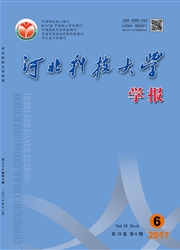

 中文摘要:
中文摘要:
为了解决现有生物激励设计过程存在的跨领域知识获取难的问题,提出了面向生物激励设计的基于功能特征语义相关性的功能语义聚类和基于环境特征约束适应性的环境约束聚类组成的两阶段知识元聚类算法.将生物激励设计过程跨领域实例知识检索问题转化为对离散的生物领域或工程领域知识元的聚类检索.根据跨领域术语知识表示的不同确定跨领域检索功能词,执行基于功能特征语义相关性的功能语义的一阶段聚类,结合生物领域功能与环境特征约束间的相关性,完成基于不同类型环境特征约束的二阶段聚类.一方面,将模糊理论与模糊数学引入知识元聚类算法中,提出基于模糊隶属度函数的语义相似度计算方法,实现了基于功能关键字的语义聚类;另一方面,将FCM聚类算法引入到知识元聚类过程中,结合给出的不同类型环境特征约束相似性算法,提出了AFCM算法,实现了基于环境特征约束适应性的环境约束聚类.最后,开发了相应的原型系统,并且以视觉假体装置设计为例进行测试.结果表明,聚类时间和准确率得到极大改善,聚类效率得到显著提升.该算法有效地避免了跨领域知识分布的离散性,减少了设计过程中研究对象的数量,能够合理地获取已有设计知识,为深入研究奠定了基础.
 英文摘要:
英文摘要:
To tackle the problem existing in the process of cross-domain knowledge acquisition in biologically inspired design, a functional semantic clustering based on functional feature semantic correlation and an environment-based clustering based on environment-constrained adaptability for biologically inspired design are proposed.On the one hand, the fuzzy theory and fuzzy mathematics are introduced into the knowledge cell clustering algorithm, and the semantic similarity calculation method based on the fuzzy membership function is proposed to realize the semantic clustering based on the functional keywords.On the other hand, an AFCM algorithm is proposed by introducing the FCM clustering algorithm into the knowledge cell clustering process, and combining the provided different types of environmental feature constraints similarity algorithm, the environment constra-ined clustering based on the adaptability of environmental feature constraints is achieved.Finally, the corresponding prototype system is developed, and the visual prosthesis device design is tested.The results show that the clustering time and accuracy are greatly improved and the clustering efficiency is improved significantly.The algorithm avoids effectively the discreteness of cross domain knowledge distribution, reduces the number of the research objects during the design process, and can acquire reasonably the existing design knowledge, which establishes a basis for further study.
 同期刊论文项目
同期刊论文项目
 同项目期刊论文
同项目期刊论文
 期刊信息
期刊信息
